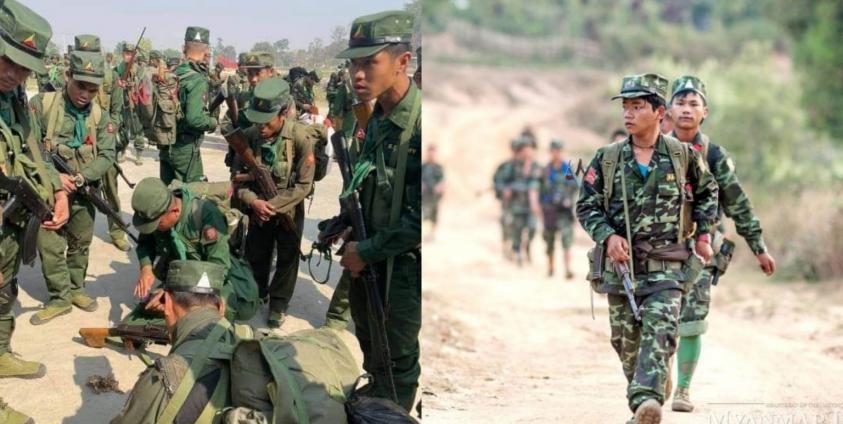It seems unlikely that the conflict between rival ethnic armed organisations (EAOs) in Hsipaw and Kyaukme townships, where they are fighting over territory in Shan State, will end anytime soon, despite how much the violence has affected their own communities.
Thousands have been uprooted by fighting between the Restoration Council of Shan State (RCSS) and Shan State Progress Party (SSPP) and several villagers have been killed and injured, as well as many houses destroyed during the clashes. But the EAOs prefer to blame each other for the conflict rather than sit down and discuss a ceasefire.
Col Sai Hsu, SSPP spokesperson, told SHAN that the RCSS recently attacked them in Namlan sub township. ”If they do not enter our area, there will be no clashes. And if they withdraw from the area, we can start dialogue and establish a demarcation line,” he said. If RCSS continues to invade its territory, Sai Hsu said the conflict is likely to return to Kehsi and Mong Kung townships in southern Shan State.
Maj Kham San, RCSS spokesperson, also pointed fingers at SSPP. He said when they offered to meet for peace talks to end the disagreement, the SSPP attacked them and forced them to defend themselves. ”This is the reason why we have not been able to resolve this problem until today,” he explained.
“I can not understand why EAOs can not meet for dialogue. I can understand why they can not negotiate with the Burma Army, but not why they are unable to find a solution with each other,” a volunteer helping displaced villagers in northern Shan State told SHAN.
Nearly 2,000 have been affected by the conflict in Hsipaw and Kyaukme townships since it resumed on August 11. Villagers are unable to work on their farms and are struggling without enough food or medicine in the crowded camps for internally displaced persons (IDPs), where they risk contracting COVID-19.
“The number of IDPs has increased, and at the same time, it is very difficult to provide for them because of the pandemic. We want EAOs to stop the fighting as soon as possible,” a volunteer working in a camp in Kyaukme town told SHAN.







